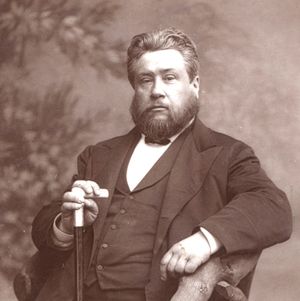The Lord will bless us

Charles Spurgeon
RESUMEN: God has always remembered us and will continue to bless us in the future. This promise comes from the Holy Spirit and is infinite in scope. We should praise and bless God for His faithfulness.
I can put my stamp on the first sentence. Can't you do it? Yes, Jehovah has remembered us, provided us, comforted us, delivered us, and guided us. In every move of His providence He has remembered us, never overlooking our petty affairs. His mind has been full of us: that's another way of saying "He remembered." This has been the case all the time, without any interruption. However, in special moments, we have seen His concern more clearly, and we want to remember those moments with overwhelming gratitude. Yes, yes, "the Lord remembered us."
The next sentence is a logical inference from the previous one. Since God is unchanging, He will continue to remember us in the future, just as He has in the past; and that he remembers us is equivalent to that he bless us. But we have here not just a conclusion of reason but a statement of inspiration: we receive this on the basis of the authority of the Holy Spirit: "HE WILL BLESS US." This means great and inscrutable things. The very breadth of the promise indicates its infinite scope. He will bless us according to His own divine way, and He will do so forever and ever. Therefore, each of us is to say: "Bless, my soul, Jehovah!"
Source: The Bank of Faith Checkbook. Translation by Allan Roman.
http://www.spurgeon.com.mx/chequera/meditames/febrero.pdf
The next sentence is a logical inference from the previous one. Since God is unchanging, He will continue to remember us in the future, just as He has in the past; and that he remembers us is equivalent to that he bless us. But we have here not just a conclusion of reason but a statement of inspiration: we receive this on the basis of the authority of the Holy Spirit: "HE WILL BLESS US." This means great and inscrutable things. The very breadth of the promise indicates its infinite scope. He will bless us according to His own divine way, and He will do so forever and ever. Therefore, each of us is to say: "Bless, my soul, Jehovah!"
Source: The Bank of Faith Checkbook. Translation by Allan Roman.
http://www.spurgeon.com.mx/chequera/meditames/febrero.pdf

